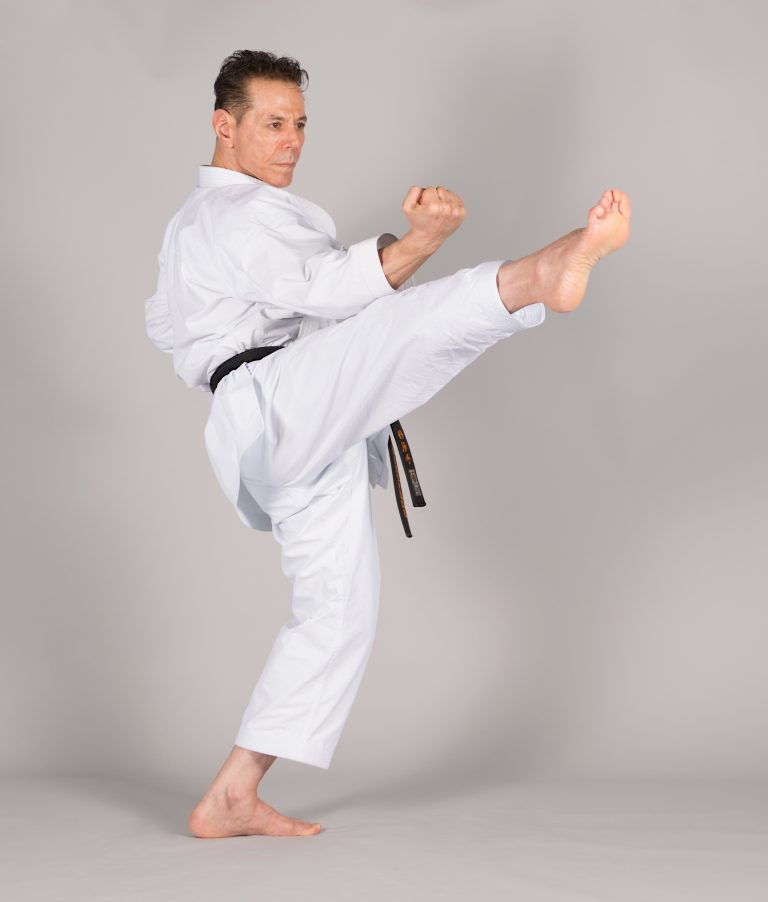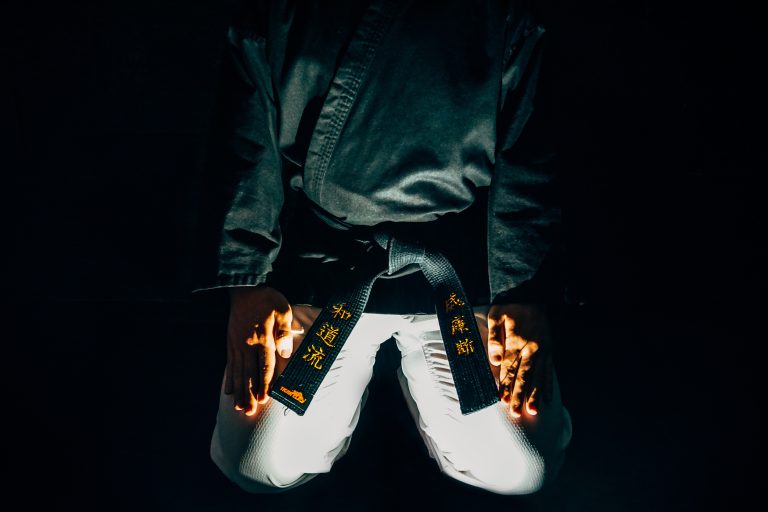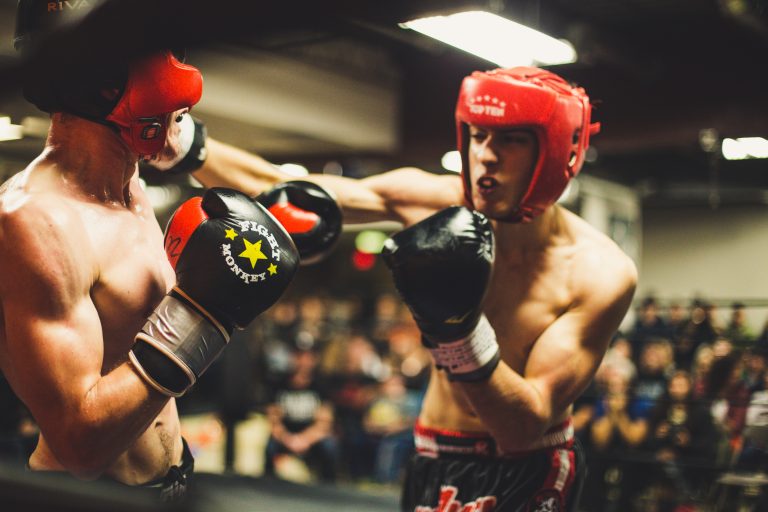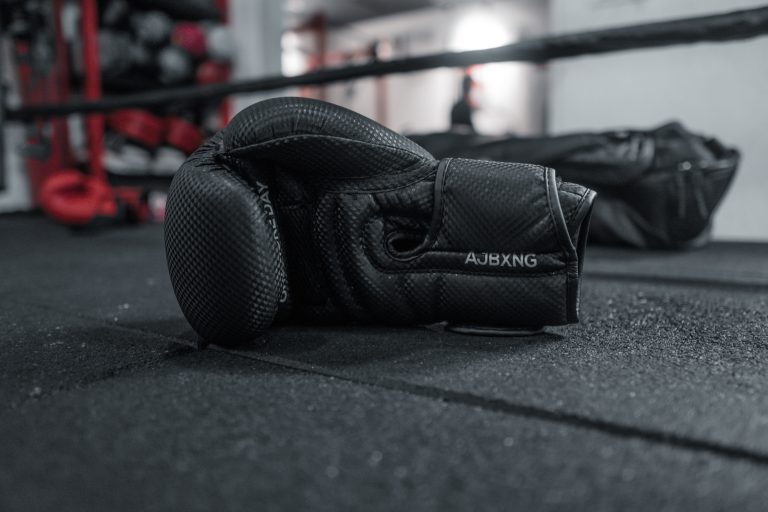Why Karate is Good for You: Benefits for the Mind and Body
Karate is a popular martial art that has been practiced for centuries. This discipline is believed to have originated in Okinawa, Japan, and today, it is practiced by millions of individuals around the globe. While karate is often associated with self-defense techniques, it offers numerous benefits for both the mind and body. In this article, we will delve into the reasons why karate is good for you and why you should consider taking up this ancient art.
1. Karate improves physical fitness
Karate is a physically demanding discipline that requires strength, endurance, and flexibility. It involves intense training that includes repetitive movements, kicks, punches, and blocks. This training helps in developing strong muscles, improving cardiovascular health, and increasing flexibility.
In addition to these benefits, karate also increases agility and coordination. Practicing karate requires quick and fluid movements that help in developing these skills. Over time, practitioners can expect to see improvements in their balance, agility, and coordination.
2. Karate promotes mental health
Apart from physical fitness, karate also offers significant benefits for mental health. Karate requires discipline, focus, and perseverance. When practicing karate, individuals must concentrate on their movements, their breathing, and their technique. This focus helps in reducing stress levels and calming the mind.
Furthermore, the practice of karate requires individuals to persevere through difficult challenges. This perseverance translates to mental toughness and resilience, which can help in dealing with life’s challenges. Additionally, karate promotes self-confidence and self-esteem, which can boost overall mental health.
3. Karate teaches self-defense skills
Karate is widely known for its self-defense techniques. In today’s uncertain world, having these skills can be crucial for one’s safety. Karate teaches individuals how to defend themselves against attackers by using appropriate techniques and movements. This knowledge and skill can make individuals feel more secure and confident in their ability to defend themselves.
4. Karate instills discipline and respect
Karate requires discipline, commitment, and respect. Practicing karate involves adhering to strict rules and guidelines, and practitioners must show respect to their instructors and fellow classmates. These values are instilled in students from the very beginning and are carried throughout their practice.
The discipline and respect instilled through karate practice can also translate to other areas of life. These values can be applied to relationships, work, and other areas, where discipline and respect can be essential.
5. Karate provides a community of like-minded individuals
Finally, one of the greatest benefits of practicing karate is the community that comes with it. Karate classes bring together people who are passionate about the discipline, and this sense of community can be beneficial for mental health. Having a support system of like-minded individuals can help in reducing stress, increasing motivation, and promoting overall positive mental health.
In conclusion, karate offers numerous benefits for both the mind and body. From physical fitness to mental health, self-defense to discipline and respect, karate provides a holistic approach to well-being. If you’re looking for a way to improve your physical and mental health while learning self-defense skills, karate can be an excellent choice.
FAQs About Why Karate is Good for You
If you’ve ever considered taking up martial arts as a way to improve your physical and mental well-being, you might be wondering what exactly karate can offer you. Here are some frequently asked questions about the benefits of karate, and why it might be a good fit for you.
What Is Karate?
Karate is a form of martial arts that originated in Okinawa, Japan. It involves a combination of strikes, kicks, and blocks, as well as hand-to-hand combat techniques. Karate is practiced as a sport, a form of self-defense, and a way to promote physical and mental health.
What Are the Physical Benefits of Karate?
Karate is an excellent way to build strength and endurance. The practice of karate involves a lot of movement, and as such can help increase your cardiovascular health, flexibility, and agility. Additionally, practicing karate can lead to improved balance and coordination.
What Are the Mental Benefits of Karate?
In addition to its physical benefits, karate can also have a positive impact on your mental well-being. Karate emphasizes discipline, focus, and self-control, all of which can help improve your concentration and mental clarity. It can also help improve your mood and reduce stress, leading to an overall better sense of emotional well-being.
Can Karate Help with Self-Defense?
Yes, one of the primary reasons people learn karate is to learn self-defense techniques. In addition to the physical techniques learned in karate, students also learn situational awareness and how to diffuse confrontational situations. Karate can help give you the confidence and ability to defend yourself in dangerous situations.
Can Karate Be a Competitive Sport?
Yes, karate can be practiced competitively. Karate competitions involve sparring matches, where participants are judged based on their ability to execute various techniques. Competing in karate can be a great way to challenge yourself, gain confidence, and measure your progress and growth in the practice.
Can Anyone Learn Karate?
Yes, anyone can learn karate regardless of age or physical ability. Karate is typically taught in a way that is accessible to everyone, with modifications and adjustments made for individuals with different physical abilities. As with any physical activity or exercise, it is best to consult with your doctor before starting to ensure it is safe for you.
What Should I Look for in a Karate Class?
When looking for a karate class, it is important to find a qualified instructor who is experienced in the practice of karate. Look for a class that emphasizes safety and proper technique, and that is tailored to your skill level and physical ability. Additionally, finding a class that emphasizes the mental and emotional benefits of karate can be a great way to maximize the positive impact the practice can have on your overall well-being.
How to Get Started with Karate Training
Karate is an ancient martial art that has been practiced and refined for centuries. Its benefits are many, including increased fitness, improved self-defense skills, and increased mental strength. If you’re considering starting karate, there are some important steps you need to follow to get started.
1. Find a Good Karate School
The first step in starting your karate journey is finding a good school that will teach you the basics and help you progress through the levels. Here are some things to consider when choosing a karate school:
- Location: You want a school that’s close to your home or workplace to make it easy to attend classes.
- Instructor: The instructor should be highly skilled and experienced, with a good reputation for teaching and training.
- Curriculum: The school should have a well-organized curriculum that is suitable for your level of experience.
- Facility: The school should have a well-equipped facility with good hygiene practices.
- Price: The cost of classes should be reasonable and fit your budget.
2. Choose the Right Equipment
Before you start your karate training, you will need to invest in some essential equipment. Here is a list of the basic equipment you will need:
- Karate Gi: This is the traditional karate uniform that is worn during training and competitions.
- Belt: Each level of karate has a different colored belt, and you will need to purchase belts as you progress through the levels.
- Gloves: These are used for sparring and should be comfortable and provide good protection for your hands.
- Shin and Foot Guards: These are used to protect your shins and feet during sparring and to prevent injury.
- Mouth Guard: This is essential for protecting your teeth and mouth during sparring.
3. Learn the Basic Techniques
Once you have found a good school and have your equipment, it’s time to start learning the basic techniques of karate. Here are a few of the most important techniques you will learn:
- Punches: There are many different types of punches in karate, including straight punches, uppercuts, and hook punches.
- Kicks: Kicks are an essential part of karate and include front kicks, side kicks, and roundhouse kicks.
- Blocks: Blocks are used to defend against attacks and include techniques such as rising blocks and inward blocks.
- Strikes: Strikes are used in close-range combat and include techniques such as elbow strikes and knee strikes.
- Throws: Throws are used to take down an opponent and include techniques such as hip throws and shoulder throws.
4. Train Regularly and Progress Through the Levels
Karate is a demanding martial art that requires regular training and dedication. It’s important to attend classes regularly and practice your techniques at home. As you progress through the levels, you will learn more advanced techniques and gain a deeper understanding of the art of karate. You will also earn new belts as you progress through the levels, each representing a higher level of skill and knowledge.
5. Enjoy the Benefits of Karate
As you train and progress through the levels of karate, you will begin to experience the many benefits that this martial art has to offer. These include:
- Increased fitness and strength
- Improved self-confidence and self-defense skills
- Greater mental focus and discipline
- A sense of community and camaraderie with other karate students
Conclusion
Karate is an excellent martial art that offers many benefits for both body and mind. By following these simple steps, you can start your karate journey and begin experiencing these benefits for yourself. Remember to find a good karate school, invest in the right equipment, learn the basic techniques, train regularly, and enjoy the journey as you progress through the levels.
Inhaltsverzeichnis






